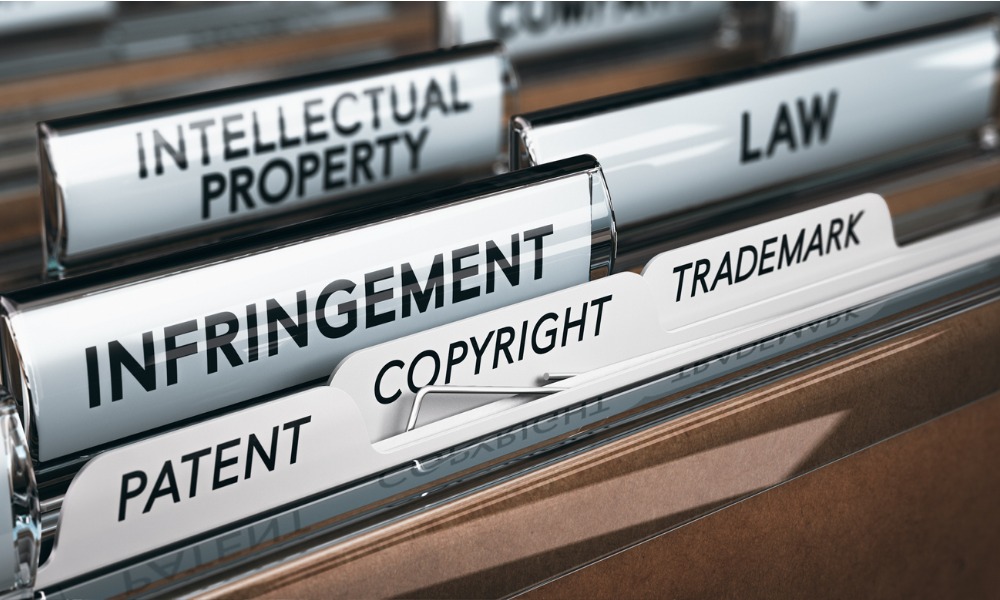As a software developer or owner, protecting your original work is important especially nowadays that technology has provided with additional means and ways that piracy and infringement may be committed.
There are five types of intellectual property in Canada, namely:
- Patents
- Industrial Designs
- Trademarks
- Copyrights
- Trade Secrets
Each individual intellectual property has its own governing federal law which provides for its registration process, protection, and remedies against infringement or violators; except for trade secrets, which do not have a specific law for it, and are protected under common law, the law on contracts, and other applicable laws.
In Canada, a software is considered as an intellectual property, and it may be protected whether as a (1) patent, (2) industrial design, (3) trademark, (4) copyright, or a (5) trade secret. All registrations for intellectual properties must be filed before the Canadian Intellectual Property Office (CIPO).
Thus, knowing these intellectual properties for software as a developer or inventor would be an advantage to fully protect your designs or inventions according to its specifications and your needs. You may also refer to Canadian intellectual property lawyers who may guide you through the process of registering your software as an intellectual property.
Find out the consequences and examples of intellectual property infringement in Canada with this article.
(1) Patented Software
Patents in Canada are protected under the Patent Act. When you’re granted a patent as a software developer, you would have the exclusive right to use and sell your new and useful invention (e.g., software) in the exclusion of others for a period of 20 years. Since patents are based on a “first applicant” regime, you must apply immediately at the CIPO to patent your software for it to be protected under Canadian laws.
Under the Manual of Patent Office Practice, computer-implemented inventions are patentable in Canada, except for abstract ideas such as method of applying skills and judgments, or methods of evaluation math formulas.
When your software invention has been patented and an infringement occurs, Section 54 of the Act provides that you may file before any provincial or federal courts for an action on infringement of the said software patent. This must be filed within 6 years after the discovery of the infringement.
(2) Software as an Industrial Design
The Industrial Design Act governs Canadian industrial designs, which are defined by the Act as the visible features on a finished article or product. It focuses more on visible appearance of the article or product, such as its shape, configuration, pattern, or ornament, rather than the articles or product’s use which is protected by the other types of intellectual property.
Your software may be registered as an industrial design if what you are protecting are its display screens, icons, or graphical user interfaces. These are registerable before the CIPO and is valid for a period of 10 years. When filing for a case on industrial design infringement, it may be filed before the federal courts and must be done within 3 years.
(3) Trademarked Software
You may also register your new software as a trademark under the Trademarks Act. A trademark typically protects the branding of your software to distinguish it from other somewhat “similar” software or products. You may also have your company name or brand be protected as a trade name.
While waiting for your trademark registration, you may have your software or brand bear a trademark symbol ™ to distinguish it from others and to protect it informally; once registered, it may now bear the ® symbol to signify that it has been officially registered with the CIPO. This registration is valid for 10 years and is renewable after the period.
An action for trademark infringement may be filed against violators before the federal courts, as provided in Section 55 of the Act. This must be filed within 2 years from the discovery of the alleged infringement. Acts considered as trademark infringement may include selling, manufacturing, advertising, or the use in labels or packaging of the registered trademarked software or registered trade name. Persons adjudged to be guilty of infringement may be penalised with imprisonment and/or fines.
(4) Copyrighted Software
A copyright is your right as an author or artist to produce or reproduce your original creation in any form and for whatever purpose (usually for profit). Under the Copyright Act, a copyright may be divided into various types:
- a copyright in relation to a work (Section 3);
- a performer’s copyright in the performer’s performance (Section 15 and 26);
- a maker of a sound recording’s copyright in the sound recording (Section 18); and
- a broadcaster’s copyright in the communication signals (Section 21).
As a software developer, your invented software may be protected as a copyright under Section 3(h) which protects a copyright in the case of a computer program. When registered, you would have the sole right to reproduce or rent out such computer program under this Section.
Generally, under Section 27 of the Act, an infringement of a copyright may be committed directly or secondarily. Thus, you may file for a civil action for damages or a criminal case against the violator, which must be filed within 3 years for the civil action, or 2 years for the criminal case, starting from the discovery of the copyright infringement. Although, for computer programs, Section 30.6 and Section 30.61 provides for exceptions, such as when it is proved that the reproduction is only for personal use, or when the reproduced copy was immediately destroyed immediately after the copyright registration, among others.
Be sure to speak with an IP lawyer near you for clarification. For those in the tech hub of Toronto, we recommend hiring an intellectual property lawyer specifically in Ontario.
(5) Software as a Trade Secret
Your software as an intellectual property may be additionally protected as a trade secret. Protecting your software as a trade secret is also effective while you are in the process of registering it as a patent, copyright, etc.
Since there are no federal Canadian laws for trade secrets, it may be done through contractual means. This can include the use of non-disclosure agreements or confidentiality clauses in your employees’ employment contracts, or through other physical or electronic means.
What is the Canadian law for software piracy?
While the Criminal Code and other federal or provincial laws do not currently cover software piracy (yet), the applicable law for software piracy in Canada is the Copyright Act, as amended by the Copyright Modernization Act. Which is why it is important to register your software as a patent, industrial design, or a copyright, to further protect your invention against piracy or infringement.
Do you want to register your original software as an intellectual property in Canada, or file a case for intellectual property infringement? Consult with the best intellectual property lawyers in Canada or comment below for any of your questions.





